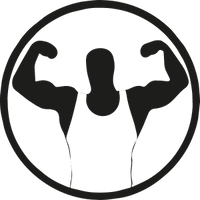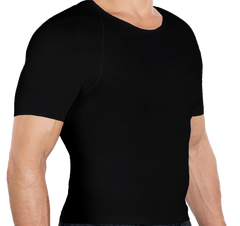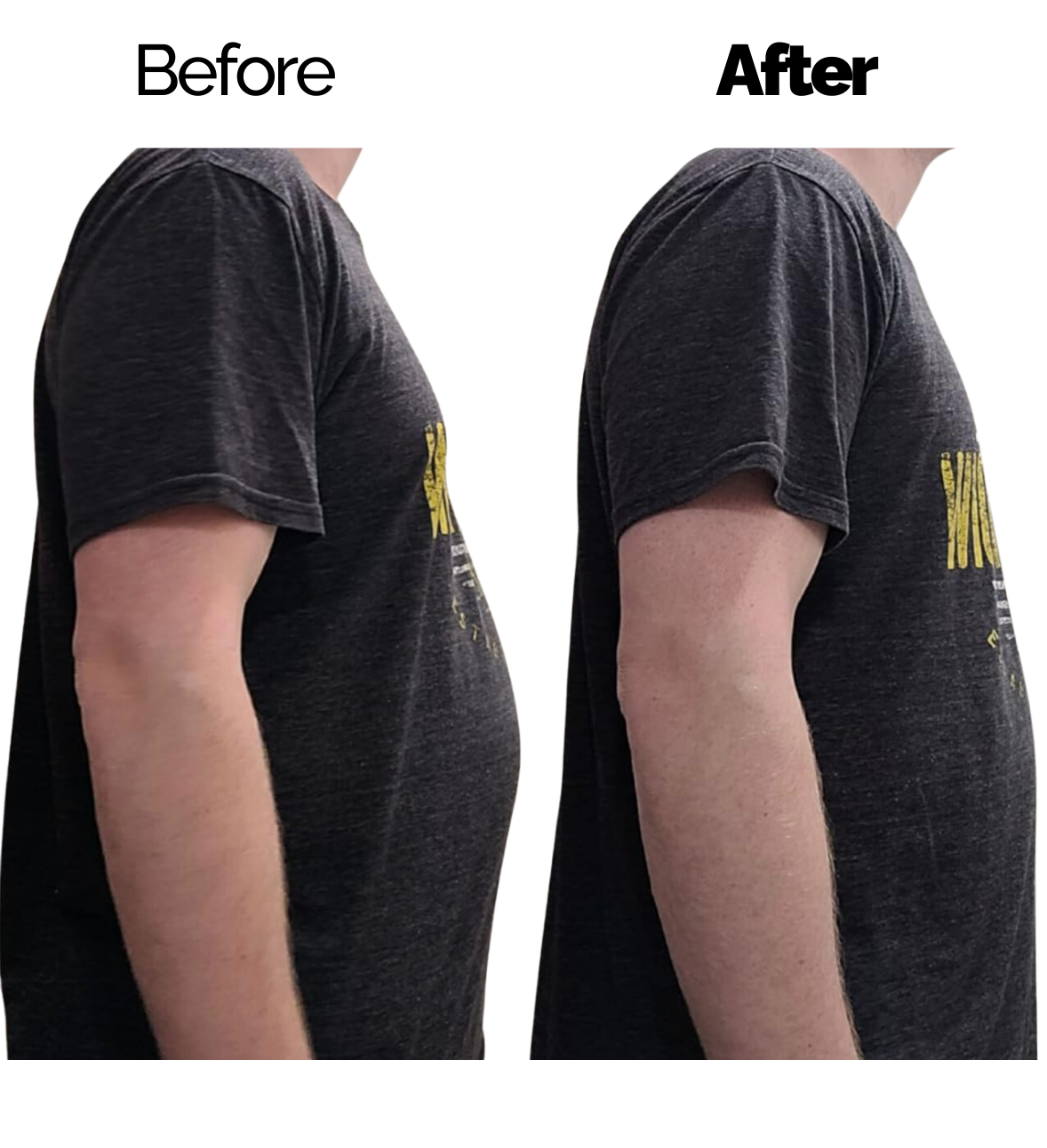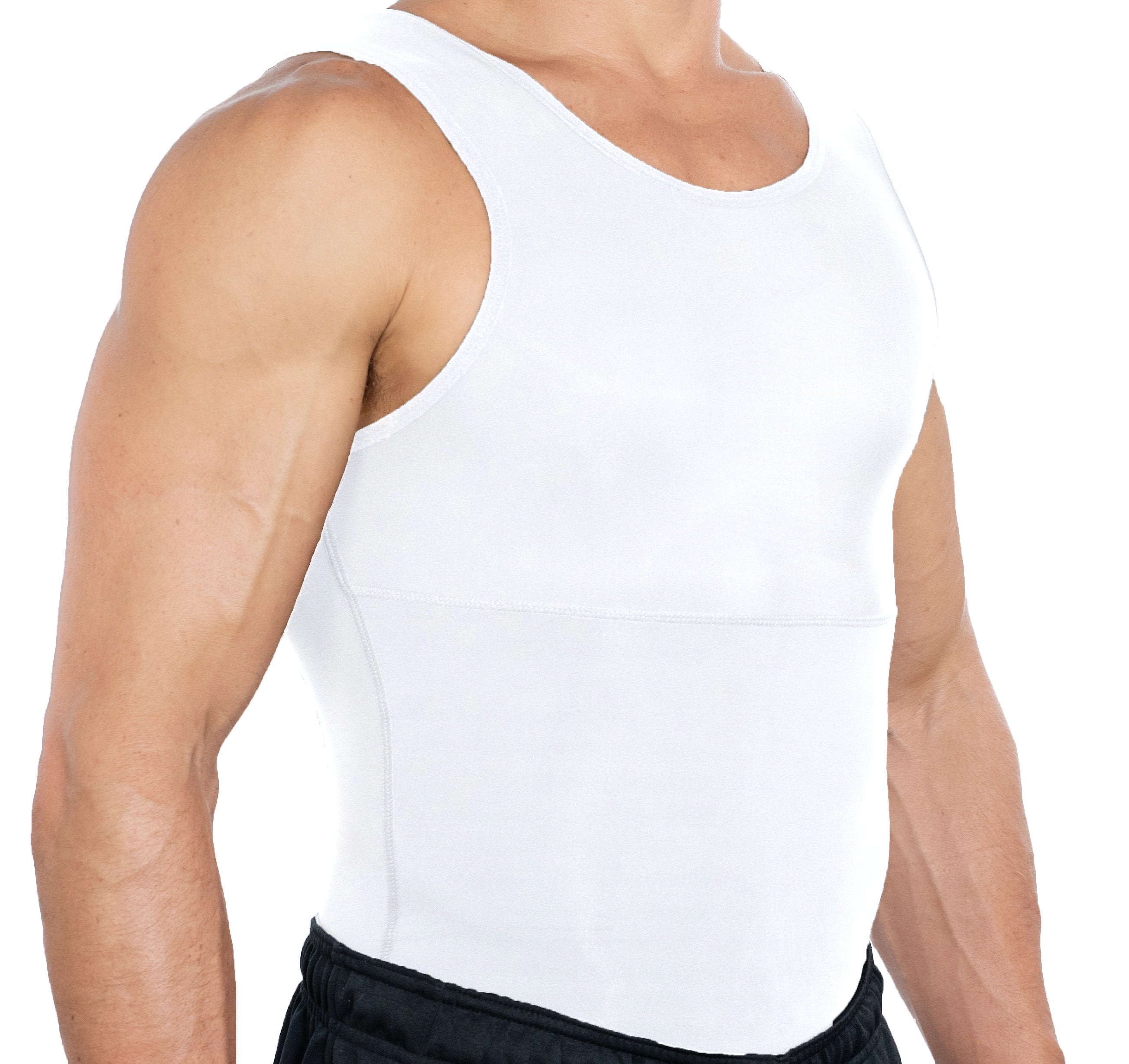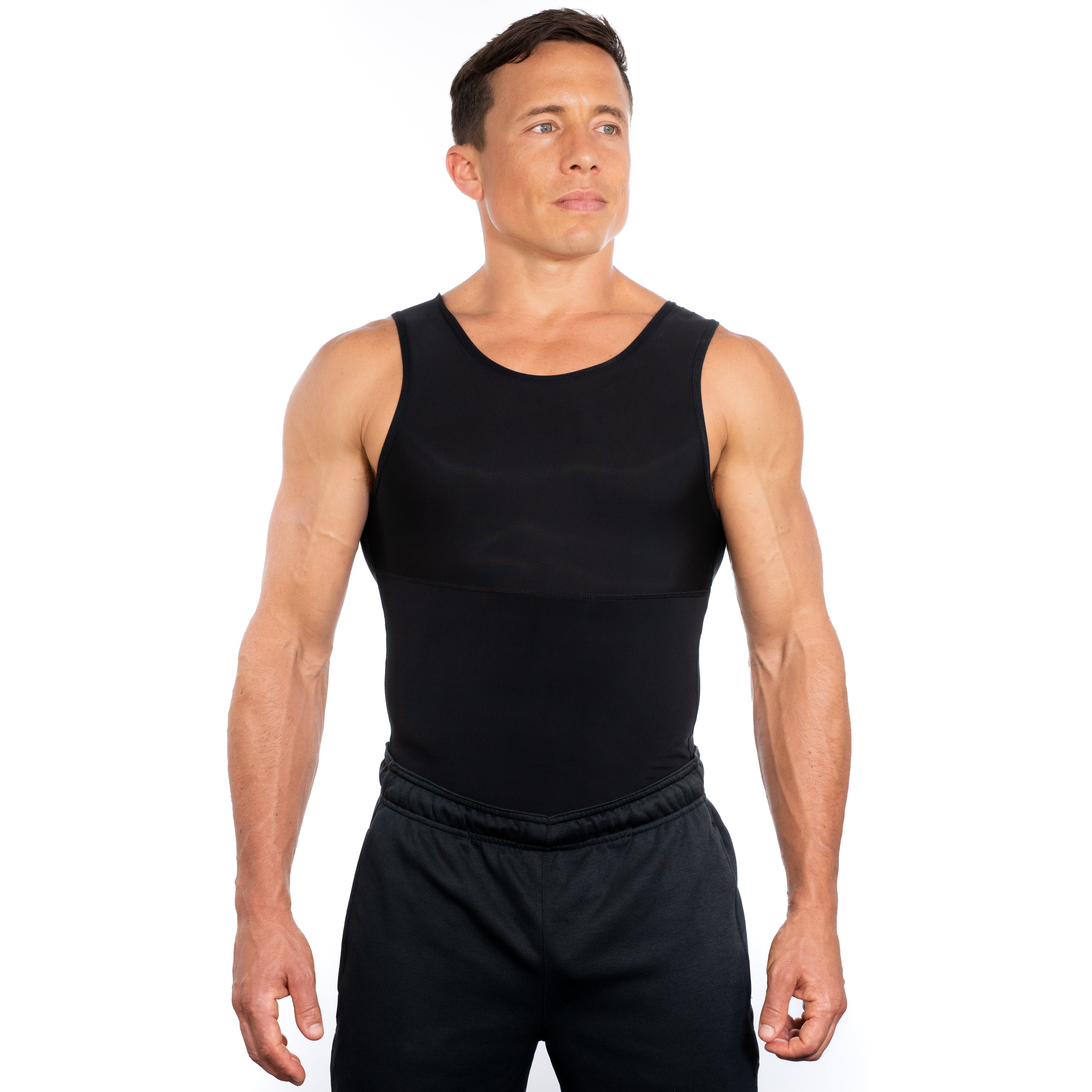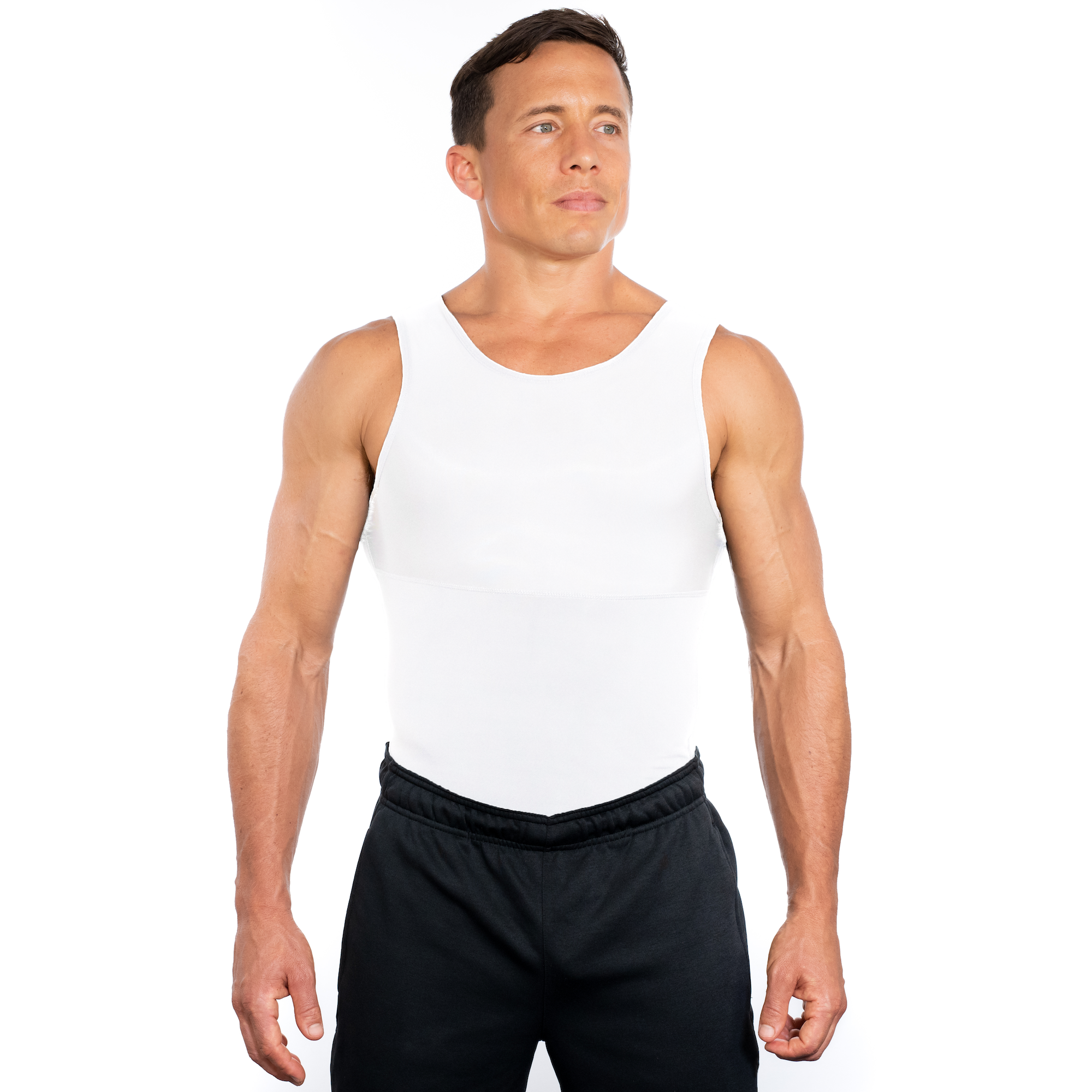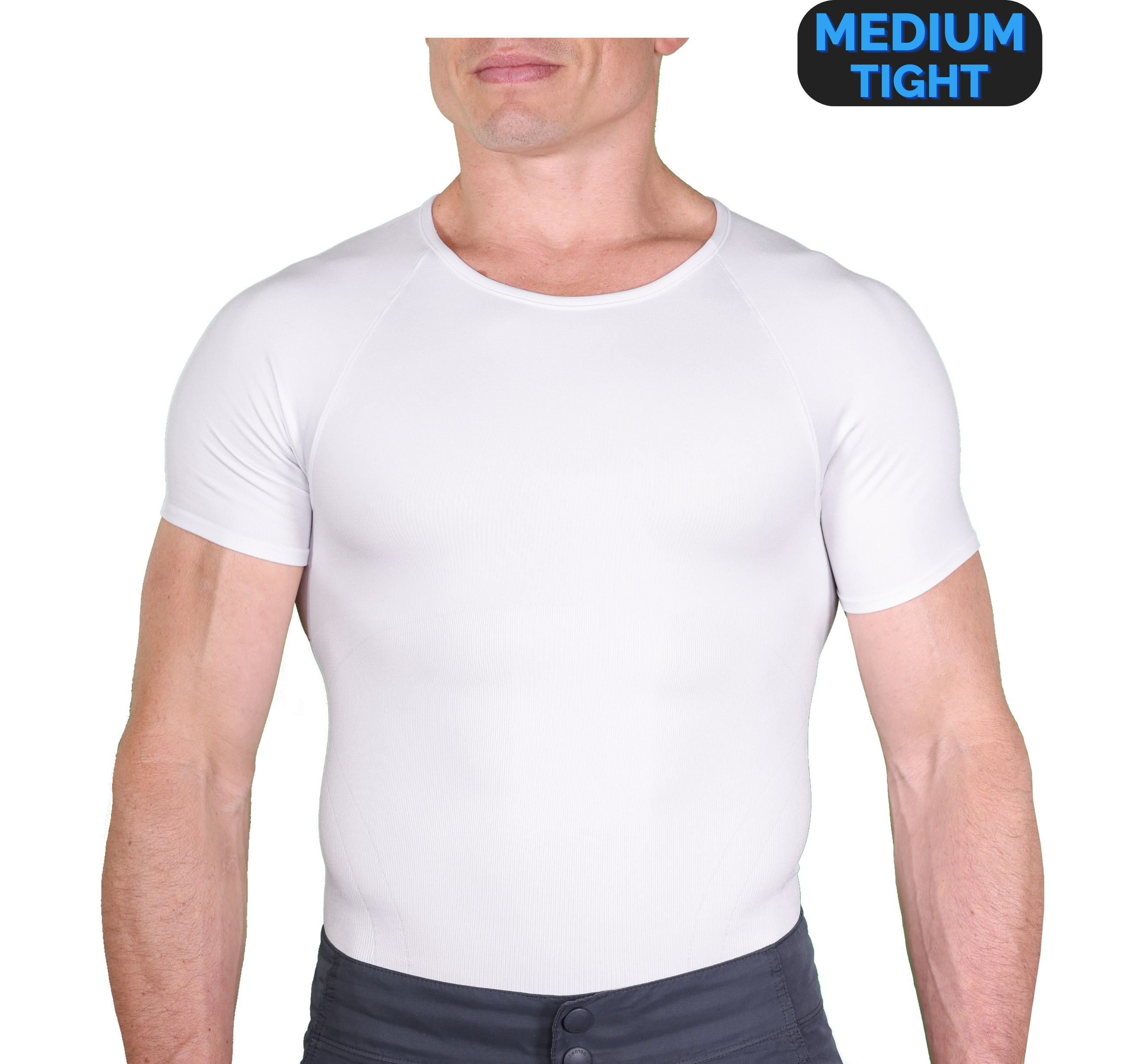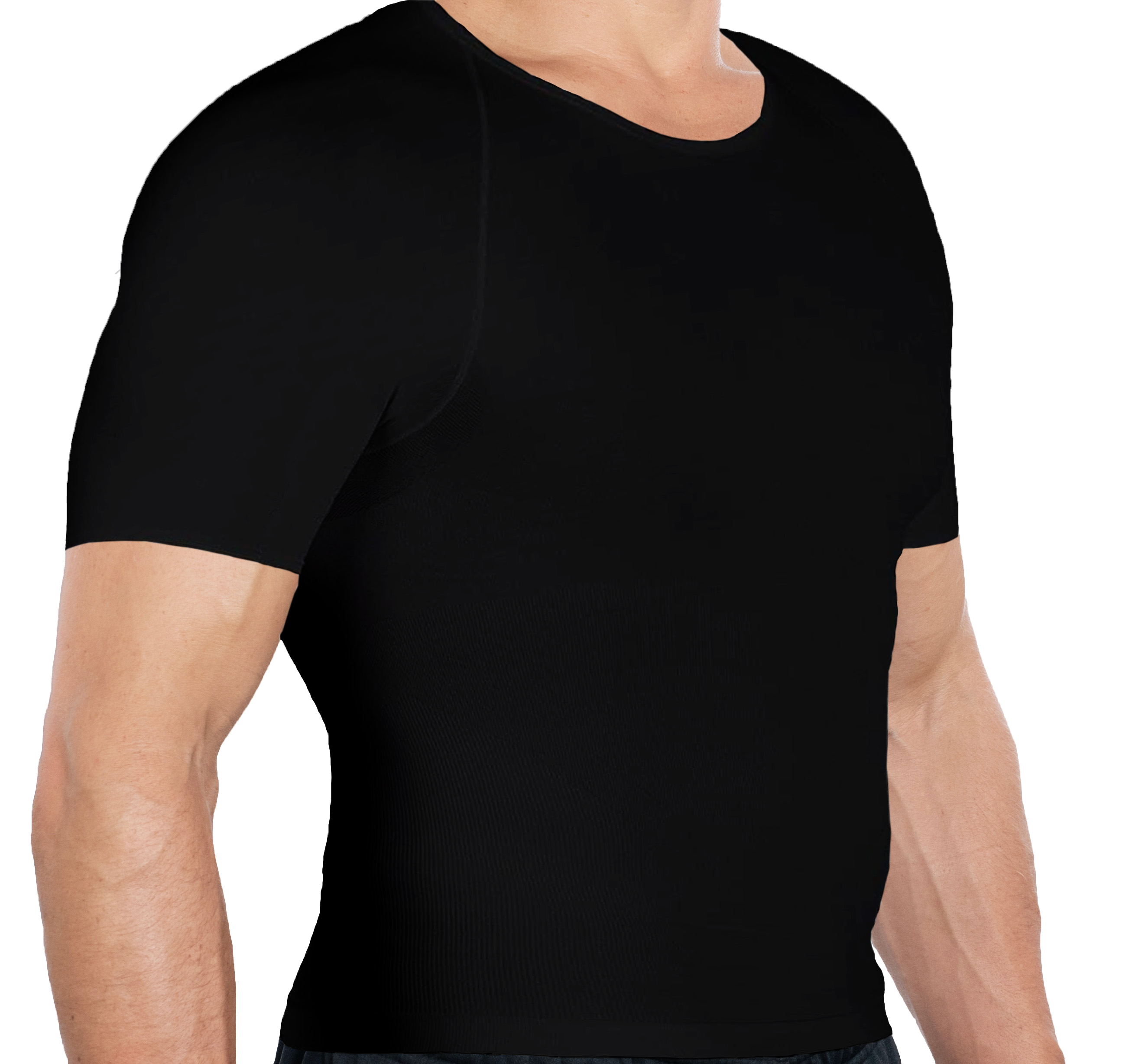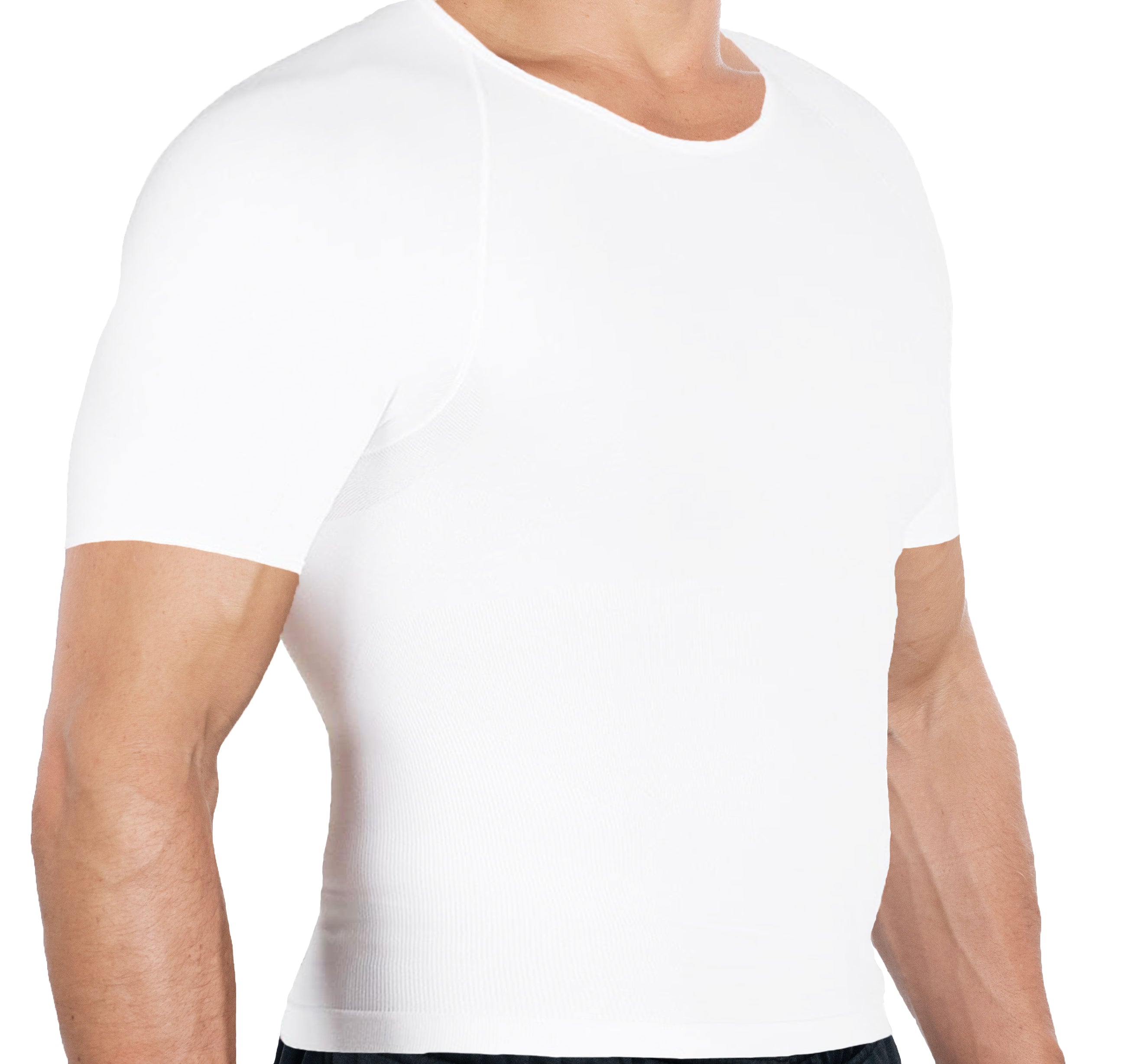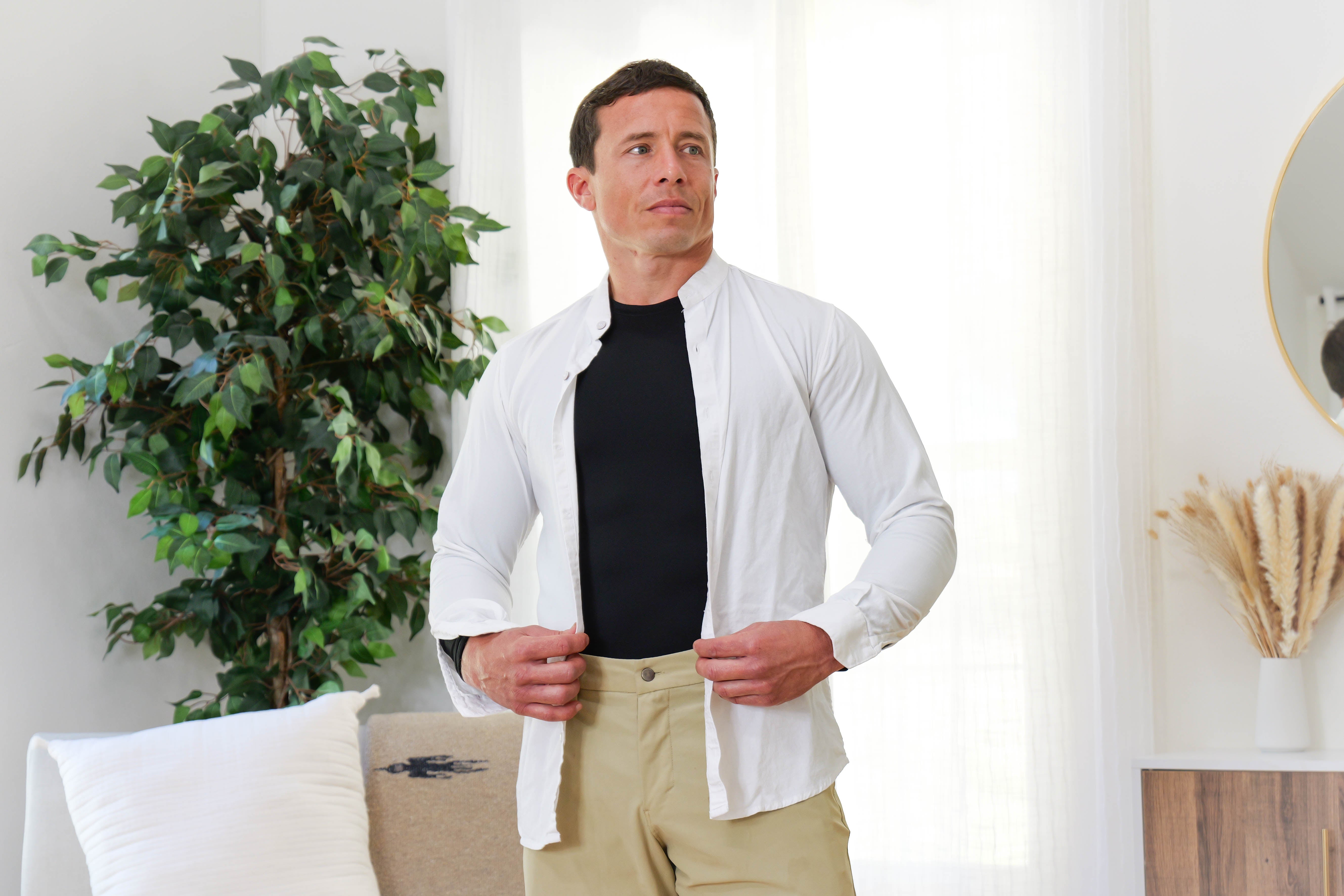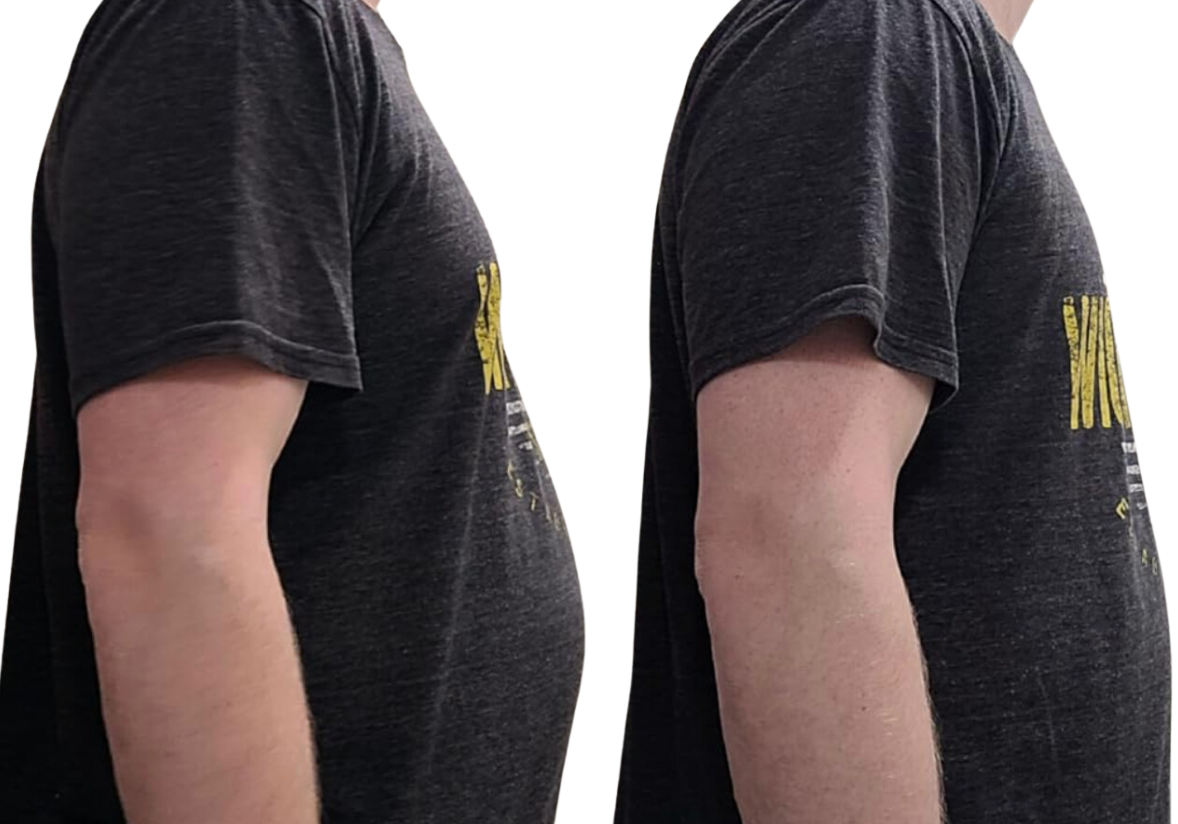When guys have low testosterone or hypogonadism (the main sex hormone and anabolic steroid in males) various problems can occur. A low sex drive isn't the only issue that can pop up; that's just what most of us might think is affected. The sperm count drops, the testicles can shrink, and many other problems can arise, including the growth of breast tissue.
But, does low testosterone cause men to have puffy nipples or grow breast tissue leading to gynecomastia?
What is Gynecomastia?
Men can develop enlarged breast tissue when their testosterone levels drop. This issue affects both young and older men. The root cause is an imbalance in hormonal levels between estrogen and testosterone.
This condition may impact one or both breasts. While it's not an emergency, there are ways to address it. Surgery is one option. Diet and exercise can also help. Compression shirts from Esteem Apparel can improve the chest's appearance. These shirts and tank tops can be useful to manage this problem and help men look their best despite this frustrating condition.
What are the symptoms of low testosterone?
- Reduced sex drive
- Trouble having kids or sperm issues
- Trouble getting or keeping erections
- Feeling tired all the time
- Weight gain
- Feeling too warm
- Losing hair down there and under arms
- Body might seem smaller overall
- Smaller testicles
- Weak bones
- Feeling down
- Worry and short temper
- Hard time focusing
What happens to men when they have low testosterone and can it make them grow man boobs?
Low testosterone levels can affect a man in many ways, as mentioned earlier. It can also lead to breast tissue growth and make nipples puffier. As we learn in basic biology classes, testosterone plays a key role in developing a man's reproductive organs (prostate and testes). This hormone also helps to build bone and muscle mass in men. On top of that, it has an impact on sex drive, sperm production, and other bodily functions.
As men get older, their hormone levels tend to fall faster unless they stay active, take supplements to boost their health, practice mindfulness, and eat better. This happens to both men and women as they age - various hormone levels drop. The same goes for stomach acid - it decreases with age just like hormones do. We also lose muscle and bone mass more if we don't take care of ourselves, and we might even shrink in height.
When testosterone levels go down and weight goes up, men can develop gynecomastia. This means breast tissue grows, nipples puff up, and chest areas start to sag.
Men must keep an eye on their hormone levels as they get older. These levels begin to dip when a guy hits forty so grasping ways to boost health becomes crucial—if not, nature will run its course.
Testosterone—the hormone's effects and limits, and it's not exclusive to men
The hormone doesn't make men angrier or cause road rage—but it has an impact on the subcortical areas of the brain to produce aggression. When a man gains weight, testosterone levels drop because of the increased amount of cortisol and serotonin. The hormone is also crucial to have because men with lower levels are more likely to develop prostate cancer as they age. Boys during puberty with too little testosterone don't go through normal stages of becoming a man. Their voice doesn't deepen as expected, they might experience mood swings, and other growth issues may need a doctor's help to improve these conditions.
Also, unless you're always up to date with general biology—women have testosterone levels too. Women have this hormone, which their ovaries and adrenal gland produce. It works in similar ways and over time just like in men, the body's hormone levels drop. This leads to a lower sex drive and can decrease bone mass—this happens more when women stop having their periods; the menopause stage.
The role of men having testosterone
- Grows penis and testes
- Deepens voice during puberty
- Causes pubic and facial hair to grow and appear
- High testosterone levels can lead to male baldness
- Affects muscle strength
- Influences muscle size
- Impacts sex drive and sperm production
More info about testosterone:
- Made from cholesterol
- Excess cholesterol doesn't guarantee high testosterone
- Brain's pituitary gland controls its levels
Should you try testosterone therapy if you have low levels?
As men get older, their testosterone levels decrease. Some guys think about hormone replacement when they hit their mid-forties, but it's not always necessary. , it's needed to help the prostate gland or lower the risk of bone fractures. There are also supplements like vitamin D and calcium that can help with this.
Eating better, working out reducing body inflammation, and boosting intake of certain vitamins, minerals, and anti-inflammatory substances like quercetin can also benefit the prostate.
Right now, testosterone hormone replacement is used for boys during puberty who aren't growing . They have low testosterone levels that are causing delayed growth.
Testosterone treatment has an impact on improving these symptoms:
- Weakness
- Lack of energy
- Fragility
- Mood problems like feeling down or worried
- Trouble with sex
- Thinking and memory issues
Men may notice these signs of breast growth:
- Discomfort in teens
- Puffy chest tissue
- Sore breasts
- Sensitive nipples that hurt when clothes rub against them
Gynecomastia can happen because of medicines and illegal drugs (not just low testosterone):
- Anti-androgens used to treat enlarged prostates
- Anabolic steroids and androgens used to treat hormone deficiencies
- AIDS drugs
- ADD drugs (Adderall)
- Anti-anxiety drugs (Valium, Klonopin, Ativan)
- Tricyclic antidepressants
- Antibiotics
- Ulcer drugs
- PPI and H2 blockers (Drugs that eliminate and reduce acid)
- Chemotherapy
- Heart drugs (Calcium channel blockers and others)
- Motility drugs (Domperidone and Reglan)
- Alcohol
- Anabolic steroids used to build muscle and boost athletic performance
- Marijuana
- Heroin
- Methadone
Health conditions that can lead to gynecomastia:
- Hypogonadism
- Aging
- Tumors
- Hyperthyroidism
- Kidney failure
- Liver failure and cirrhosis
- Malnutrition and starvation
Risk factors and complications of having gynecomastia include:
· Adolescence
- Old age
- Use of anabolic steroids
- Liver disease
- Keynes disease
- Thyroid disease
- HIV infection
- Tumors that produce hormones
- Klinefelter syndrome
- Other conditions might cause it too, so talk to your doctor about how to improve any health issues you have now
Understanding your testosterone levels and ways of prevention
If you or someone you know has gynecomastia, remember that solutions exist to help you feel better about yourself and your looks. This problem can mess with your head. Make sure to skip the booze, eat better live healthier, and do chest exercises and cardio every week.
Stay clear of illegal drugs and even weed. Some say smoking weed might lead to this condition, but if you need it for health reasons, talk to your doctor before quitting if you already deal with long-term pain. Maybe doing more chest workouts each week or adding other supplements to boost hormone levels and increase testosterone is the right move for you.
Once more, have a chat with your family doctor and get your blood checked to find out your testosterone levels. Getting advice from a nutrition expert and workout coach could also help you decrease chest fat and make your chest look and feel better. To boost your confidence even quicker during this journey, buy a couple of compression shirts and wear them as you work towards a healthier body and minimize the appearance of man boobs.
